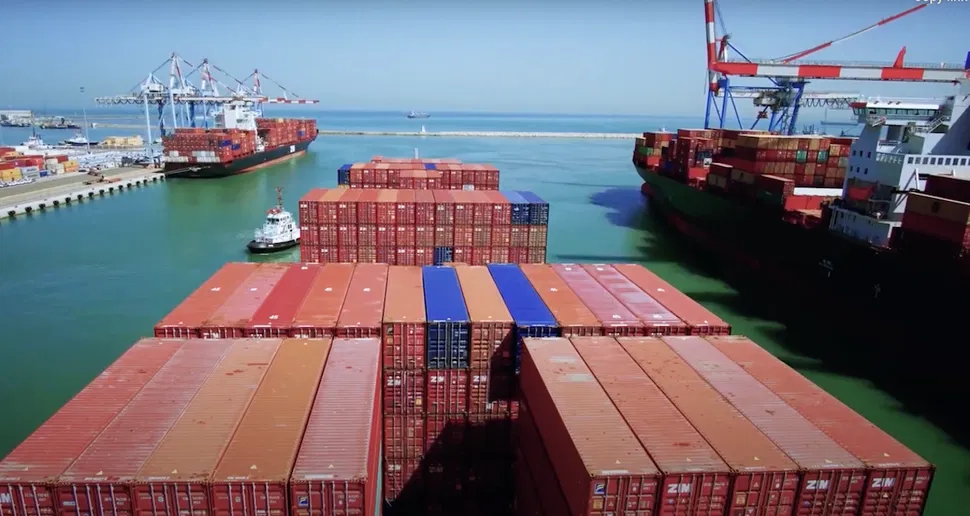Minimal Disruptions to Maritime Traffic
In a context where regions grapple with heightened tensions, recent missile exchanges between Israel and Iran raised concerns about disruptions to maritime operations. Surprisingly, ports in these danger zones reported no significant interruptions to their operations.
Israeli Foreign Policy and Maritime Security
On a recent Monday, Israel announced plans to intensify its military campaigns targeting Iran’s nuclear infrastructure. This decision comes amid claims that Iran is edging closer to developing nuclear weapon capabilities, stirring fears along adjacent shipping lanes.
Recent Missile Activity
Over the weekend, Iranian missile strikes were aimed at Haifa, which serves as Israel’s most active container port, alongside a nearby oil refinery. Thankfully, reports indicate that no injuries or substantial damages occurred, keeping operations relatively stable.
Haifa port is notable for handling approximately 30% of Israel’s overall imports, operated by an Indian company, Adani.
Continued Operations
Despite the increases in regional tensions, the vessel operator headquartered in Haifa, Zim, assured their clients that operations at both Haifa and Ashdod ports are proceeding as normal. They confirmed that cargo ships are arriving as scheduled and bookings for marine transport to and from Israel remain robust.
Operational Assessments and Threat Levels
Kuehne & Nagel, a major logistics provider, categorized operations at Haifa and Ashdod as “business as usual,” highlighting only a slight increase in vessel waiting times over the past week, reported at just above a day.
In a separate assessment, the Joint Maritime Information Center classified the regional threat level as “significant.” As the hostilities between Israel and Iran escalate, they also identified increased risks to maritime movements, attributing the raised risk to electromagnetic interference and overall regional instability.
Reported difficulties with Automatic Identification System (AIS) spoofing and GPS jamming have been noted particularly near key maritime routes like the Port of Bandar Abbas and the Strait of Hormuz.
Possible Closure of Critical Maritime Passage
The discussions held in the Iranian parliament about the potential closure of the Strait of Hormuz could pose grave consequences for global energy supplies. This narrow strait is a crucial conduit, accounting for roughly 20% of the world’s oil and gas flow.
According to data from Jean-Paul Rodrigue at Texas A&M University, around 30 million TEUs (Twenty-foot Equivalent Units) transit near the strait. These operations primarily involve significant transshipment traffic, notably with Jebel Ali in Dubai as a major hub. Any disruption here could ripple through various shipping networks, far beyond just oil supplies.
Global Shipping Network Insights
Kuehne & Nagel also identified Jebel Ali, the busiest port in the Gulf, as maintaining normal operations. Conversely, Oman’s Port of Salalah is facing significant disruptions, which, interestingly, aren’t due to military threats but rather the effects of seasonal monsoons.
APM Terminals, a Maersk subsidiary, is invested heavily in Salalah. Amid these developments, ocean carriers remain quiet regarding possible war-related advisories. It’s worth noting a historical event where the container ship Maersk Tigris was seized by Iran in the Strait of Hormuz a decade ago, demonstrating the fragile nature of maritime security in these regions.
Conclusion: The Broader Logistics Impact
In the world of logistics, it’s crucial to recognize how incidents like these ripple through global supply chains. With the ongoing strife and potential for maritime disruptions, logistics providers need to stay agile and informed. The best reviews and feedback give insights, but nothing compares to experiencing the service firsthand—especially while navigating the complexities of international shipping.
For businesses looking to streamline their logistics operations amidst these uncertain times, GetTransport.com provides a versatile solution. Whether it’s office relocations, cargo deliveries, or transporting bulky items like furniture or vehicles, their offerings stand out for being cost-effective and reliable.
In light of the evolving global situation, it’s beneficial to consider the convenience and adaptability that GetTransport.com offers. With access to a range of transportation solutions tailored to meet diverse needs, users can make informed decisions without breaking the bank. The transparent booking process empowers customers to navigate logistics effectively. For your next cargo transportation, consider the reliability of GetTransport.com and explore better offers to ensure your logistics needs are met. Book now.

